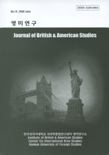John Steinbeck"s The Grapes of Wrath: Home-Seeking and the Ambiguity of the Ending
John Steinbeck"s The Grapes of Wrath: Home-Seeking and the Ambiguity of the Ending
- 한국외국어대학교 영미연구소
- 영미연구
- 제14집
-
2006.0689 - 109 (21 pages)
- 26

Since John Steinbeck"s The Grapes of Wrath (1939) was published, critics have mainly dealt with this book from the viewpoint of political novel. Certainly these criticisms have some validity in that the novel attacked monopoly capital and pitiless industrialism. Yet what is more important in the novel, intertwined with the political, seems to be Steinbeck"s involvement with the theme of home-searching because, although all episodes in the novel are related to the political, Steinbeck continues to investigate why the people become migrants, how the migrants try to find their home, and how it is possible in reality.<BR> For the Joads, home has especially significant meaning. It has not only the meaning of security but is also symbolically related with one’s own identity. In order to have a home as a place, the Joads must break the obstacles constrained by monopoly capital. It is in this context that Steinbeck"s philosophy of sticking together, one of the controversial points of this work, appears as a solution. Their home can be found only when they take an action with the mass by transcending the traditional notion of family or growing the communal notion of family. However, although Steinbeck emphasizes sticking together among human beings in order to overcome their wretched circumstances, on the other hand, he implies to us the futility of sticking together or organization. The Joads" leaving the Weedpatch government camp indicates this apprehension of Steinbeck"s. Thus, Steinbeck, getting closer to the ending, undermines the theme of home-searching itself.
Ⅰ. Introduction<BR>Ⅱ. Journey for Home and Sticking Together<BR>Ⅲ. The Undermining of Communality and the Ambiguity of the Ending<BR>Ⅳ. Conclusion<BR>Works Cited<BR>Abstract<BR>
(0)
(0)